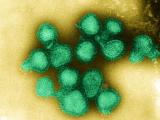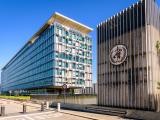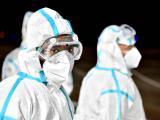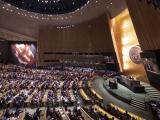Jun 8, 2010 (CIDRAP News) – The head of the World Health Organization (WHO), responding today to recent criticism of WHO policies regarding conflicts of interest and transparency, said the agency needs to tighten its rules for relations with industry but insisted that commercial interests never influenced her decisions regarding the H1N1 influenza pandemic.
WHO Director-General Margaret Chan released a letter she wrote to the British Medical Journal (BMJ), which published a lengthy investigative report and accompanying editorial last week that were critical of the WHO. The report said that when the WHO in 2004 published guidance on use of vaccines and antivirals in a flu pandemic, it did not disclose the industry ties of three key scientists who helped develop the guidance (though the scientists declared those ties in other publications). The report also criticized the WHO for withholding the names of members of the emergency committee that has advised the agency on pandemic alert phase decisions.
In her letter of response, Chan wrote, "Potential conflicts of interest are inherent in any relationship between a normative and health development agency, like WHO, and profit-driven industry. WHO needs to establish, and enforce, stricter rules of engagement with industry, and we are doing so. However, let me be perfectly clear on one point. At no time, not for one second, did commercial interests enter my decision-making." The letter does not specify what steps the agency is taking to strengthen conflict-of-interest policies.
Chan also objected to what she called "the assumption that WHO simply dismisses these hard questions as unfounded," pointing to the agency's recent commissioning of a committee of outside experts to review the WHO's pandemic performance. The committee plans to address recent criticisms of the WHO over the pandemic, she noted.
In addition, Chan rejected "the implication that WHO provoked unjustified fear" about the H1N1 virus. She said that when she declared the pandemic under way on Jun 11, 2009, "I drew attention to the fact that we did not expect to see a sudden and dramatic jump in the number of severe or fatal infections. In every assessment of the pandemic, WHO consistently reminded the public that the overwhelming majority of patients experienced mild symptoms and made a rapid and full recovery, even without medical treatment."
Concerning the identities of the Emergency Committee members, Chan essentially reiterated points she has made previously: that the WHO wants to protect the members from commercial or other pressures and that the names will be released when the committee's work is done. Records of the committee meetings and of all other documents related to the WHO's pandemic actions have been provided to the review committee, she added.
She said the BMJ pieces give the clear impression that the WHO's declaration of the pandemic was influenced to some degree by a desire to boost the pharmaceutical industry. "The bottom line, however, is that the decisions to raise the level of pandemic alert were based on clearly defined virological and epidemiological criteria," she wrote. "It is hard to bend these criteria, no matter what the motive."
Chan also denied the allegation that the WHO "changed its definition of a pandemic in order to accommodate a less severe event (and thus benefit industry)." She said the current WHO pandemic plan, with its phase definitions, was completed in February 2009, about 2 months before the H1N1 virus emerged. The BMJ article alleged that the agency changed its definition of a pandemic in May 2009, dropping a portion that said pandemics cause "enormous numbers of deaths and illness."
Chan's letter does not refer specifically to another recent critique of the WHO's pandemic actions, from a committee of the Parliamentary Assembly of the Council of Europe (PACE). That report, released Jun 4, denounced the pandemic response by the WHO and European health authorities as an unwarranted scare that led to a waste of public resources. The report is expected to be debated at a PACE session Jun 24.
In related developments, another allegation made in the BMJ article—that the declaration of a pandemic was what triggered orders for H1N1 vaccine—was addressed today in a news report in Nature. The BMJ report speculated that pharmaceutical company supporters on the WHO Emergency Committee may have pushed for a pandemic declaration because this would trigger vaccine contracts. But the Nature story by Declan Butler points out that many countries, including the United States, Britain, France, and Canada, ordered large amounts of H1N1 vaccine well before the pandemic declaration on Jun 11, 2010. The story says the BMJ authors conceded this point when challenged.
See also:
Jun 3 BMJ article "WHO and the pandemic flu 'conspiracies'"
http://www.bmj.com/cgi/content/full/340/jun03_4/c2912
Jun 3 BMJ editorial "Conflicts of interest and pandemic flu"
http://www.bmj.com/cgi/content/full/340/jun03_4/c2947
Jun 4 CIDRAP News story "BMJ, European group criticize WHO pandemic actions"
Jun 8 Nature news report on the controversy




















